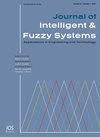基于多源融合理论的多类信用评估集成模型
IF 1
4区 计算机科学
Q3 COMPUTER SCIENCE, ARTIFICIAL INTELLIGENCE
引用次数: 0
摘要
随着人工智能技术的发展,基于机器学习的评估方法,特别是集成学习方法在信用评估领域受到越来越多的关注。然而,大多数集成评估模型结构复杂,参数整定耗时长,很少突破轻量化、通用性和高效性的限制。本文提出了一种新的个人信用评估集成模型。首先,考虑到多信息源之间的冲突和差异,提出了一种利用差异度量对类别先验信息进行校正的新方法。然后,利用贝叶斯数据融合理论将修正后的先验信息与当前样本信息进行融合。该模型可以综合多个基准分类器的优点,减少不确定信息的干扰。为了验证该模型的有效性,选取了几个典型的集成分类模型,并利用中国某商业银行的真实客户信用数据进行了实证研究,结果表明:在多个评估标准中,该模型不仅有效地提高了多类分类性能,而且在参数调整和泛化方面优于其他先进的多类分类信用评估模型。本文支持商业银行等金融机构的审批工作。本文章由计算机程序翻译,如有差异,请以英文原文为准。
A novel ensemble model of multi-class credit assessment based on multi-source fusion theory
With the development of artificial intelligence technology, the assessment method based on machine learning, especially the ensemble learning method, has attracted more and more attention in the field of credit assessment. However, most of the ensemble assessment models are complex in structure and costly in time for parameter tuning, few of them break through the limitations of lightweight, universal and efficient. This paper present a new ensemble model for personal credit assessment. First, considering the conflicts and differences among multiple sources of information, a new method is proposed to correct the category prior information by using the difference measure. Then, the revised prior information is fused with the current sample information with the help of Bayesian data fusion theory. The model can integrate the advantages of multiple benchmark classifiers to reduce the interference of uncertain information. To verify the effectiveness of the proposed model, several typical ensemble classification models are selected and empirically studied using real customer credit data from a commercial bank in China, and the results show that among various assessment criteria: the proposed model not only effectively improves the multi-class classification performance, but also outperforms other advanced multi-class classification credit assessment models in terms of parameter tuning and generalizability. This paper supports commercial banks and other financial institutions examination and approval work.
求助全文
通过发布文献求助,成功后即可免费获取论文全文。
去求助
来源期刊

Journal of Intelligent & Fuzzy Systems
工程技术-计算机:人工智能
CiteScore
3.40
自引率
10.00%
发文量
965
审稿时长
5.1 months
期刊介绍:
The purpose of the Journal of Intelligent & Fuzzy Systems: Applications in Engineering and Technology is to foster advancements of knowledge and help disseminate results concerning recent applications and case studies in the areas of fuzzy logic, intelligent systems, and web-based applications among working professionals and professionals in education and research, covering a broad cross-section of technical disciplines.
 求助内容:
求助内容: 应助结果提醒方式:
应助结果提醒方式:


